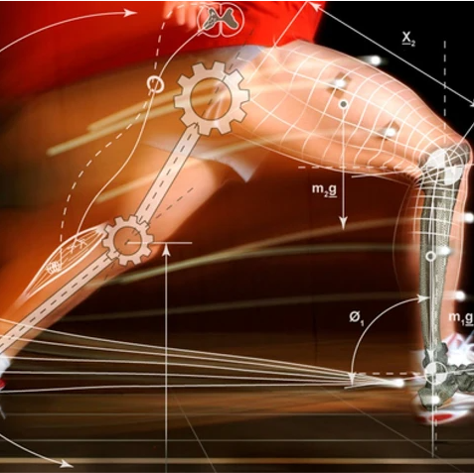


CERTIFICATE COURSES
Advanced level courses of study on specialist topics developed by the Australasian College of Sport and Exercise Physicians and the SEM Academy.
CERTIFICATE COURSES
Develop your expertise in Sport and Exercise Medicine with SEM Academy’s Certificate Courses. The SEM Academy Certificate Courses provide a postgraduate university standard of education across a range of topics to provide extensive information to improve competency and skills in a particular topic area. Each Certificate Course takes approximately 40-60 hours to complete and consists of didactic learning, information analysis, case study presentation, and knowledge and skills application to topic-specific scenarios. Each Certificate Course concludes with a content assessment and official SEM Academy Competency Certificates are issued. Click on each Certificate Course topic below to find out more!
BIOMECHANICS FOR SPORTS MEDICINE
CC-BIOM
COURSE OVERVIEW
The Biomechanics for Sports Medicine Certificate Course (CC-BIOM) uses current peer-reviewed research on sport and clinical biomechanics to illustrate key mechanical principles that can be applied to biomechanics in sports medicine. Readings and commentaries are supplemented with audio-visual tutorial presentations to practically demonstrate fundamental biomechanics concepts in areas such as bike setup, running technique and the method of inverse dynamics. Students will complete this Certificate Course with a comprehensive understanding of the biomechanics applied to some of the world’s most commonly played sports.
Developed by: Dr Nick Brown
Completion time: Approx. 50 hours
COURSE STRUCTURE
The course is separated into three sections. After completing CC-BIOM, you will be able to:
1. Define common biomechanical terms and principles of human movement analysis such as the normal biomechanical analyses of locomotion and that of commonly played sports
2. Analyse the biomechanics and pathomechanics of sporting techniques such as throwing, fast bowling, overhead sports, swimming, cycling, tennis, running and jumping
3. Understand how common technique faults relate to injury
4. Evaluate the characteristics of various sports equipment and how this may relate to injury causation and recommend appropriate modifications to sports specific equipment to prevent and manage injury
5. Become familiar with inverse dynamics and laboratory based biomechanical analysis of normal walking and common sporting techniques and actions
NUTRITION FOR SPORT AND EXERCISE MEDICINE
CC-NUTR
COURSE OVERVIEW
The Nutrition for Sport and Exercise Medicine Certificate Course (CC-NUTR) is an extensive Course aiming to equip learners with the knowledge and understanding of the core elements of sports nutrition theory and practice. This Certificate Course is appropriate for all healthcare professionals including Sport and Exercise Physicians, Doctors and Allied Health Professionals. The Course covers a spectrum of key sports nutrition subjects including the role of fats, protein, carbohydrate and hydration in sport and exercise, detailed information on micronutrients, body composition, nutrition for health, nutrition assessment and monitoring, energy systems and substrates and ergogenic aids. Case studies addressing special topics such as Relative Energy Deficiency in Sport and the tired athlete are discussed. This Course aims to foster an understanding of the role of nutrition in a multidisciplinary model of sport and exercise medicine and science.
Written by: Dr Michelle Minehan
Completion time: Approx. 60 hours
COURSE STRUCTURE
The course is separated into two, extensive sections. After completing CC-NUTR, you will be able to:
1. Describe and discuss the role, sources, utilization during exercise and influence on exercise performance of the three major macronutrients
2. Describe and discuss the role of vitamins and minerals in the diet, their function in the body, effect of overload and deficiency and the scientific evidence for supplementation
3. Outline the function of fluids in the body including the role of hydration and exercise performance, advantages and disadvantages of sports drinks and guidelines for fluid replacement during various sports and exercise
4. Outline the recommended daily allowances of carbohydrate, fat, protein, vitamins and minerals for the general population and athletes and be able to generally analyse a food diary
5. Understand the principles of nutrition for training, recovery and competition
6. Understand the scientific evidence surrounding the use of nutritional supplements, their possible adverse effects and the legality of their use in athletes (WADA code)
7. Discuss how special diets and fad diets may effect overall health and performance in the exercising population and athletes
8. Describe the role of diet for management of chronic health conditions
research METHODOLOGY FOR sports medicine
CC-RESE
COURSE OVERVIEW
The Research Methodology for Sports Medicine Certificate Course (CC-RESE) provides a comprehensive review of aspects of research and evidence-based medicine for sports doctors and allied health professionals. Successful completion of the module will enable the learner to identify practical research project concepts, develop a strategy to undertake the study, and ultimately perform the research using the appropriate study design and statistical methods. The focus on critical analysis will assist any learner to more effectively interpret the design and outcomes of published research studies. A wide range of topics are covered in this Course including ethics in research, epidemiology, quantitative and qualitative methodologies, biostatistics, meta-analysis and systematic review. The practical component of this excellent resource includes sections on how to perform a literature search, undertake research and interact with researchers, and source relevant information for your learning needs. Information on how to reference research appropriately and use a variety of storage and search systems is also included.
Written by: Prof John Kellett, A/Prof Jane Fitzpatrick, Dr Mark Fulcher, Brett Vaughan, Michael Fleischmann
Completion time: Approx. 50 hours
COURSE STRUCTURE
The course is separated into six sections. After completing CC-RESE, you will be able to:
1. Describe the basic concepts of evidence- based medicine and its limitations, along with the levels of evidence
2. Explain common research terminology and the factors contributing to the validity and reliability of research
3. Compare and contrast types of research designs and describe and give examples of qualitative, quantitative and mixed method methodology research methods
4. Define and describe the importance of different outcome measures in sport and exercise medicine and generally discuss the relative benefits of various statistical methods and tests
5. Discuss key principles of meta-analyses and systematic reviews and be able to pose a scholarly questions and conduct a systematic literature search for evidence
6. Critically appraise retrieved evidence to address a clinical question using a range of sources of research publications and electronic literature databases
7. Describe the principles of ethics with respect to teaching and research
SPORTS PHARMACOLOGY
CC-PHAR
COURSE OVERVIEW
The Sports Pharmacology Certificate Course (CC-PHAR) provides learners with a broad exposure to sports pharmacology, commencing with the general principles of pharmacokinetics and pharmacodynamics, and leading into the relevant pharmacological considerations of commonly used medications in athletes and recreational exercisers. It specifically explores the effect the medication may have on sporting performance, and the effect exercise may have on the efficacy and side effects of the medication. Doping in sport is also closely examined, including the substances involved, pharmacology of the commonly used substances, their side effects and anti-doping testing procedures. The Course is well supported by peer-reviewed literature and there are formative assessment opportunities throughout.
Written by: Prof. Andrew McLachlan, Dr Ross Cairns, Dr Scott Burne, Dr Diana Robinson
Completion time: Approx. 50 hours
COURSE STRUCTURE
This course is separated into three sections. After completing CC-PHAR, you will be able to:
1. Understand the core concepts of pharmacokinetics and pharmacodynamics and how they relate to sport and exercise medicine
2. Describe and discuss the main classes of medication commonly used in sport and exercise medicine
3. Outline how physical activity interplays with commonly used medications
4. Describe and discuss the range of performance enhancing drugs used in sport
5. Outline the range of anti-doping organisations, the doping control process and the current prohibited list
SPORTS PSYCHOLOGY
CC-PSYC
COURSE OVERVIEW
The Sport Psychology Certificate Course (CC-PSYC) provides a comprehensive understanding of the role of a sport psychologist, and the information required to effectively manage the key psychological issues in sport. The Course explores the management of mental health and common psychological issues for athletes and outlines the scope of mental skills training for performance. Information and resources are provided to assist sport and exercise physicians and other healthcare professionals to enhance their expertise in the field of sport and exercise psychology.
Written by: Dr Ruth Anderson
Completion time: Approx. 50 hours
COURSE STRUCTURE
This course is separated into three sections. After completing CC-PSYC, you will be able to:
1. Understand the prevalence of mental health issues in the general population
2. Understand the prevalence of mental health issues in elite athletes
3. Recall risk factors for mental health issues
4. Describe common mental health assessment frameworks
5. Outline mental health risks specific to the elite athlete
6. Describe mental health management strategies specific to the elite athlete










